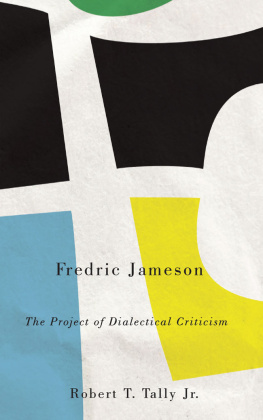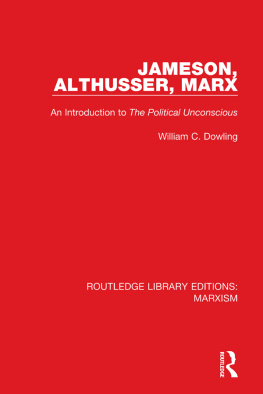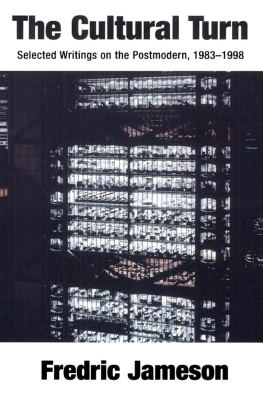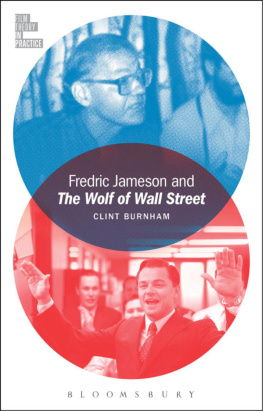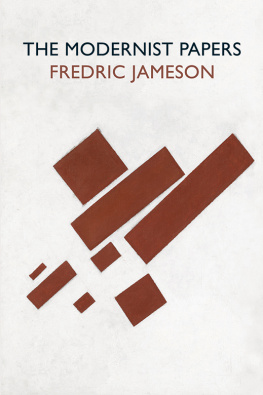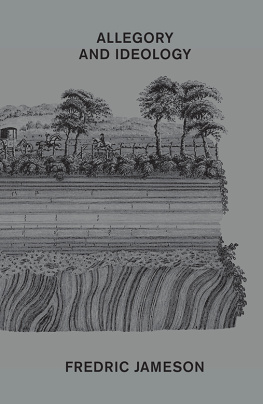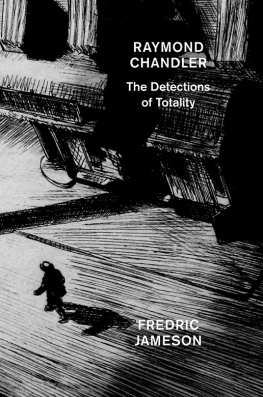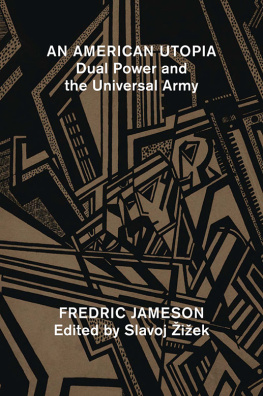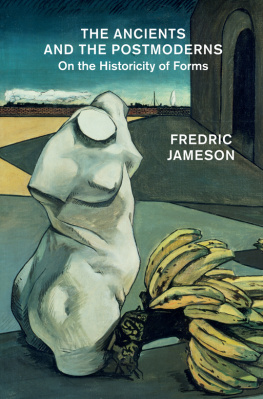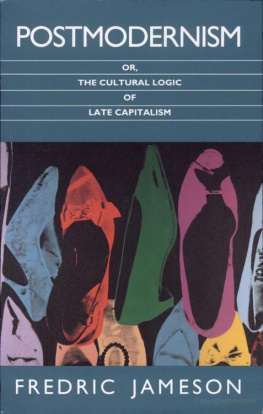Fredric Jameson
Marxism and Culture
Series Editors:
Professor Esther Leslie, Birkbeck, University of London
Professor Michael Wayne, Brunel University
Red Planets:
Marxism and Science Fiction
Edited by Mark Bould and China Miville
Marxism and the History of Art:
From William Morris to the New Left
Edited by Andrew Hemingway
Magical Marxism:
Subversive Politics and the Imagination
Andy Merrifield
Philosophizing the Everyday:
The Philosophy of Praxis and the Fate of Cultural Studies
John Roberts
Dark Matter:
Art and Politics in the Age of Enterprise Culture
Gregory Sholette
Fredric Jameson:
The Project of Dialectical Criticism
Robert T. Tally Jr.
Marxism and Media Studies:
Key Concepts and Contemporary Trends
Mike Wayne
Fredric Jameson
The Project of Dialectical Criticism
Robert T. Tally Jr.

| PlutoPress www.plutobooks.com |
First published 2014 by Pluto Press
345 Archway Road, London N6 5AA
www.plutobooks.com
Distributed in the United States of America exclusively by
Palgrave Macmillan, a division of St. Martins Press LLC,
175 Fifth Avenue, New York, NY 10010
Copyright Robert T. Tally Jr. 2014
The right of Robert T. Tally Jr. to be identified as the author of this work
has been asserted by him in accordance with the Copyright, Designs and
Patents Act 1988.
British Library Cataloguing in Publication Data
A catalogue record for this book is available from the British Library
ISBN 978 0 7453 3211 6 Hardback
ISBN 978 0 7453 3210 9 Paperback
ISBN 978 1 7837 1159 8 PDF eBook
ISBN 978 1 7837 1161 1 Kindle eBook
ISBN 978 1 7837 1160 4 EPUB eBook
Library of Congress Cataloging in Publication Data applied for
This book is printed on paper suitable for recycling and made from fully
managed and sustained forest sources. Logging, pulping and manufacturing
processes are expected to conform to the environmental standards of the
country of origin.
10 9 8 7 6 5 4 3 2 1
Typeset by Stanford DTP Services, Northampton, England
Text design by Melanie Patrick
Simultaneously printed digitally by CPI Antony Rowe, Chippenham, UK
and Edwards Bros in the United States of America
In memory of Rick Roderick,
who encouraged me to do better
Contents
The Ideologies of Theory: Situations of Theory and
The Syntax of History |
Series Editors Preface
It is entirely appropriate that the first book in this series to be devoted exclusively to a single figure should focus on Fredric Jameson. The longevity of Jamesons research program, along with the authority he brings to his work, means that several generations of students and scholars alike have become acquainted with Marxist cultural theory in a context (academia) which is often at best ignorant or indifferent to it, and at worst actively hostile. Jameson has pursued his interest in and defense of such key concepts for Marxism as the dialectic, totality, and utopianism with a remarkable consistency. This is especially the case when we consider how driven by fashionable trends academia can be. The scope of Jamesons interests in culture and the range of alternative theoretical paradigms he engages with (and subsumes) have often been remarked upon and may be regarded as a model for maintaining the vibrancy and relevance of academic Marxism. Yet second only to Jamesons position within academe, the contours of his work have perhaps been most shaped by the fact that, for all his cosmopolitanism, he is emphatically an American Marxist. While British Marxists might be especially concerned with the cultural power and characteristics of the most successful ruling class in the world, French Marxists with the centrality of the state, and Marxists in the global South with the legacies of colonialism and imperialism, Jameson is above all concerned with capital in one of the purest capitalist economies in the world. This makes his work at once highly particular and, given the global hegemony of the United States and its increasing power to shape others in its own image, internationally resonant. Jamesons continued extraordinary productivity means that happily this book will not be the definitive exposition of his still expanding oeuvre.
We can only hope that this series will last as long as Jamesons project. If it proves to be even slightly as influential as his work, we will be happy indeed. We would like the series to become, for academics, activists and artists everywhere, a natural home for Marxists interested in the cultural question.
Series Editors
Mike Wayne
Esther Leslie
Acknowledgements
As is indicated in the title of my introduction and implicit throughout this study, the literary critic and cultural theorist Fredric Jameson is above all an educator. I have benefited from being his student, first in the classroom, then while a visiting scholar in the Graduate Program in Literature at Duke University, and more recently in my own career as a literature professor. As a teacher, mentor, and scholar, Jameson has contributed mightily to my own intellectual and professional formation. Many others have helped along the way, and I would especially like to thank the professors, students, and friends who contributed to my studies of dialectical criticism and who helped foster a sense of community, among them Jonathan Arac, John Beverley, Paul A. Bov, Eric Clarke, Sara Danius, Lawrence Goodwyn, Sabine Hake, Stefan Jonsson, Ronald Judy, Carol Kay, Marcia Landy, Toril Moi, Michael Morton, Michael V. Moses, Valentin Mudimbe, Dana Polan, Rick Roderick, James Rolleston, Kenneth Surin, Xiaobing Tang, Phillip Wegner, and, above all, Sandy Mills. I would also like to acknowledge my comrades in the Marxist Literary Group, an organization Jameson helped to establish, which has provided a forum for spirited discussion and fellowship.
Koonyong Kim invited me to speak on Jamesons cultural cartography of the world system as part of his seminar at the American Comparative Literature Associations annual meeting in 2013, and my presentation there turned out to be an early version of this studys . I am grateful to the organizers of Simon Fraser Universitys Dreaming Dangerously graduate conference for inviting me to present a plenary talk on utopia as literary cartography, and the insightful comments and questions from audience members there have contributed to my thoughts on Jamesons utopianism. Moreover, I am indebted to the many generous scholars of Jamesons work whose insights have informed my reading; among these, let me single out Phillip E. Wegner, who graciously shared with me the manuscript of his then forthcoming book, Periodizing Jameson: Dialectics, the University, and the Desire for Narrative. The Jameson people, Fred-heads, form a rare and marvelous community.
Although I have not included any previously published material in this book, the feedback I received from editors and readers of some of my earlier writings on Jameson has certainly helped to inform the present study. These writings include Jamesons Project of Cognitive Mapping: A Critical Engagement, in Rolland G. Paulston, ed., Social Cartography: Mapping Ways of Seeing Social and Educational Change (New York: Garland, 1996); my reviews of Valences of the Dialectic in the Marx and Philosophy Review of Books

